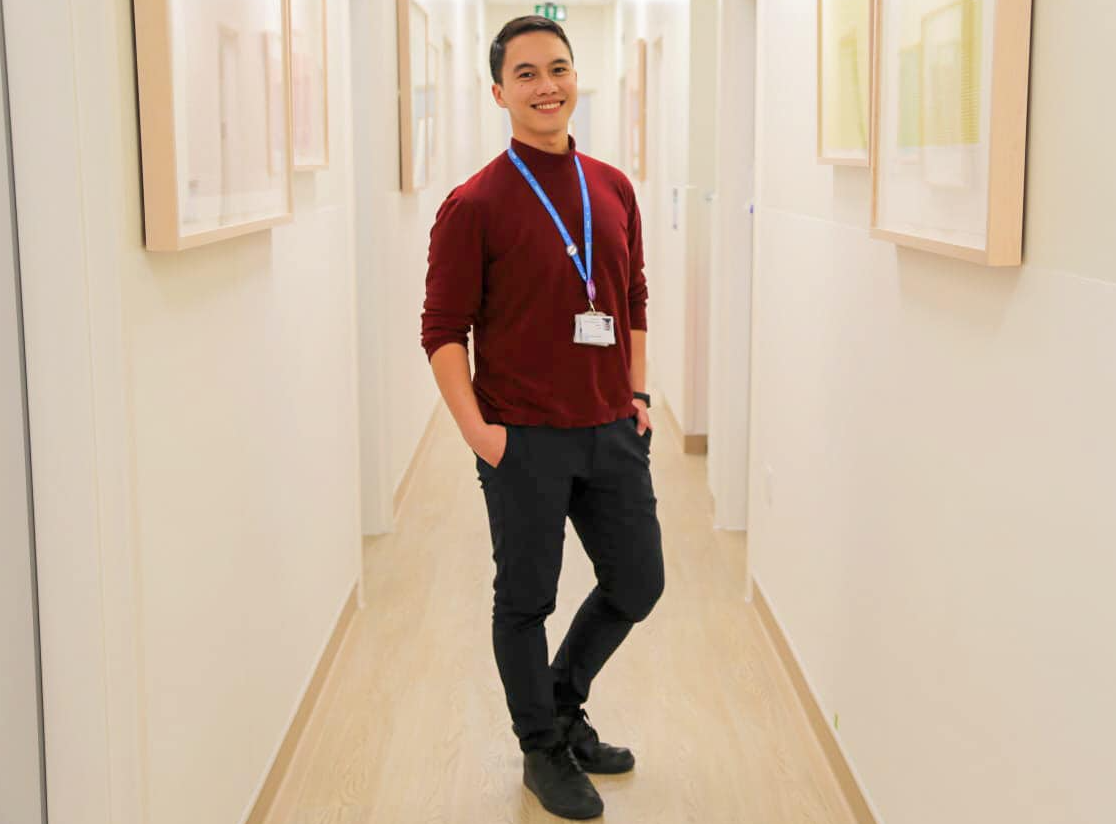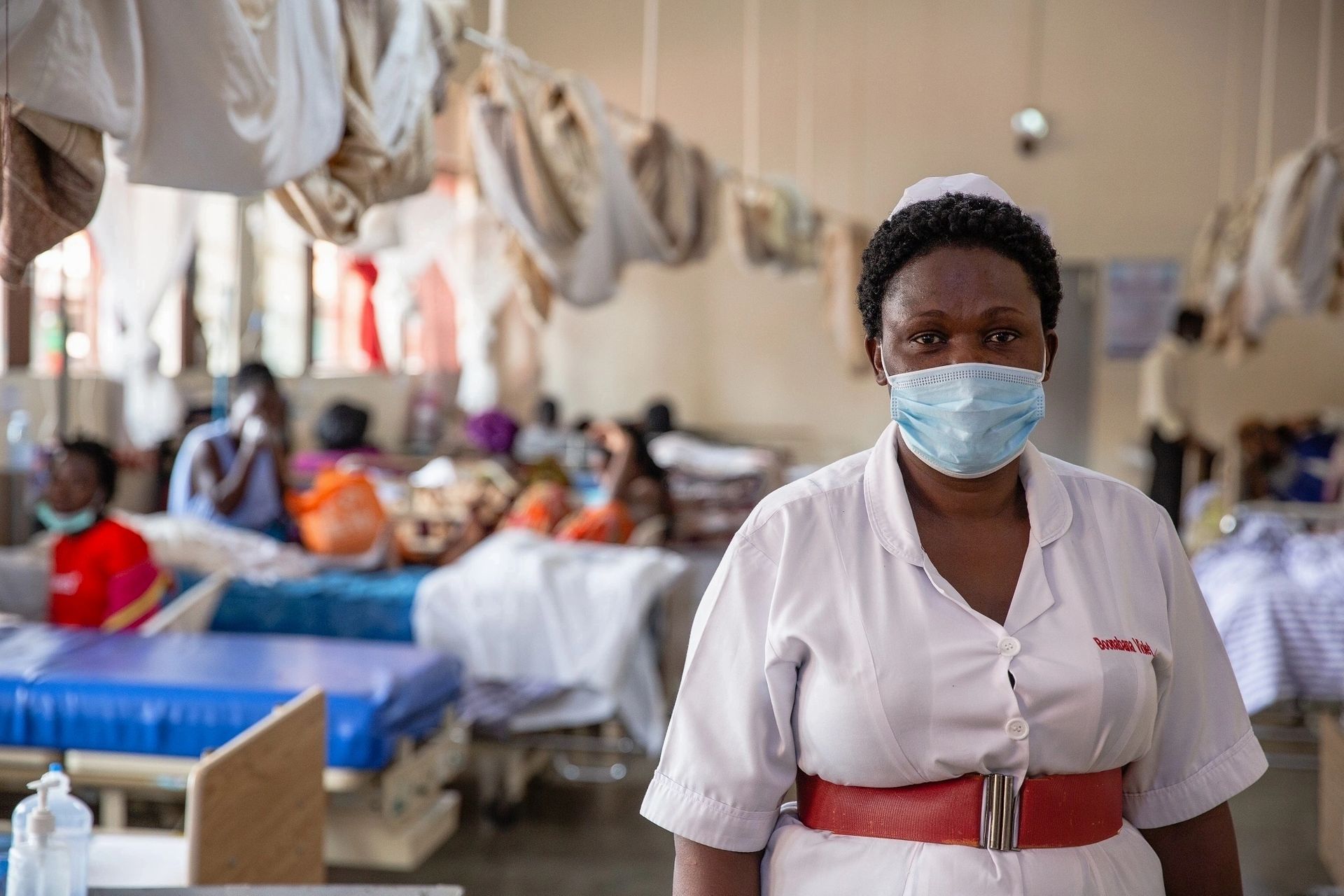‘A Vision for Future Healthcare’: Why we need to invest in the nursing and midwifery leaders of tomorrow

This is a guest post from Lloyd (Jose) Nunag – a Research Team Leader and registered Nurse.
As an active young citizen, and a Filipino nurse who is passionate about advocating for universal health coverage and health systems strengthening – I believe it is vital to recognise nurses and midwives as leaders.
To mark International Nurses Day on Wednesday 12th May, in partnership with Action for Global Health as part of their Healthy Futures campaign, I’m taking a look at my vision for future healthcare and why we need to invest in the nursing and midwifery leaders of tomorrow.
Leaders not just of tomorrow, but today
According to the World Health Organisation (WHO), for all countries to reach Sustainable Development Goal 3 on health and well-being, they estimate that the world will need an additional 9 million nurses and midwives by the year 2030.
Nurses and midwives are the key to service delivery in most health settings. In most of the Philippines where I’ve worked, they only have nurses delivering primary health care and yet their roles and their voices are severely undervalued.
And yet, over the past year, we’ve seen the incredible role that nurses and midwives have played in response to the pandemic across the world, and in keeping other essential health services running at this difficult time.
We need a strong public health nursing and midwifery presence today, during the COVID–19 pandemic, and long after. Now is the time for leaders to take action to strengthen health systems, and health workers should be at the centre of these investments.
Raising the voices of nurses and midwives in decision-making
Despite their invaluable insights, nurses and midwives don’t play enough of a role in health policy and decision-making even though they provide essential health services and are key to achieving health for all. Let’s change that.
Nurses and midwives in leadership make communities and countries healthier and stronger. They comprise the majority of the health care workforce, are in closest proximity to the problems patients face and are well-positioned to create, deliver, and implement solutions.
Yet, nurses and midwives do not routinely participate in developing solutions. They are often not recognised for their contributions, and are disproportionally under–represented within health care innovation.
Nurses and midwives can bridge the divide between the clinic and the policymaker – they should be respected for their pivotal role at the heart of most health systems.
 Young people at the heart
Young people at the heart
For this movement to succeed, we need to hear from those who are direct beneficiaries.
Young people make up one quarter of the global population, making it imperative to include youth voices in relevant areas of decision-making and policy, especially in times of a world-wide crisis.
Young nurses and midwives’ participation can make or break these reforms. The young people of today will be the main drivers, planners, and implementers of the current movements towards health for all by 2030.
The inequalities we have today might be even more pronounced in the years ahead, which makes youth engagement not only a moral obligation but a strategic one as well.
I am a firm believer that meaningful youth engagement in universal health coverage is what will shift and change circumstances particularly for the people (especially the most vulnerable populations) who have suffered at the hands of the very systems meant to serve them.
We should move from rhetoric to action and put systems in place which will ensure young nurses and midwives in all their diversity can transition from beneficiaries to partners to leaders of the Nursing and Midwifery Agenda.
Investments in young people everywhere are a positive investment for all.

Health for all
In this coming decade I envision a greater demand for gender equality and human rights being key components of ‘health for all’ – ensuring that no matter who you are, what country you live in or what level of income you have, you can access the healthcare you need.
To tackle health inequalities, governments need to develop and implement research-based health financing that reduces inequalities, including gender-responsive public finance, budgeting, programming, monitoring and evaluation and auditing.
Nurses and midwives, as both leaders, advocates and implementers, will turn the ambition of achieving health for all people into a reality. I’m hoping that on International Nurses Day we can not only celebrate the vital contribution that nurses and midwives give to our healthcare systems but as the leaders and important contributors to health care that they are. Helping them find their voices in ways they often don’t.
For too long nurses and midwives have been invisible, uncounted, undervalued and silenced. It is time to shift the paradigm, and to insist on being taken seriously.
Now is the moment to find our individual and collective voices: nurses and midwives are leaders too!
What you can do to help
Prime Minister Boris Johnson has said he is using the UK’s G7 Presidency to unite leading democracies to help the world build back better from coronavirus and create a healthier world. So, let’s ensure he does just that.
Take action today by signing and sending this letter to your MP to ensure that universal health coverage is prioritised at this year’s G7 Summit. The Summit is a critical opportunity for leaders to make long-overdue investments in health systems and workers around the world, including recognition of the crucial roles played by nurses and midwives.
By raising the profile of this issue, we will show the UK’s continued commitment to creating a healthier, safer world, through standing in solidarity with other countries, at a time when it matters the most.
